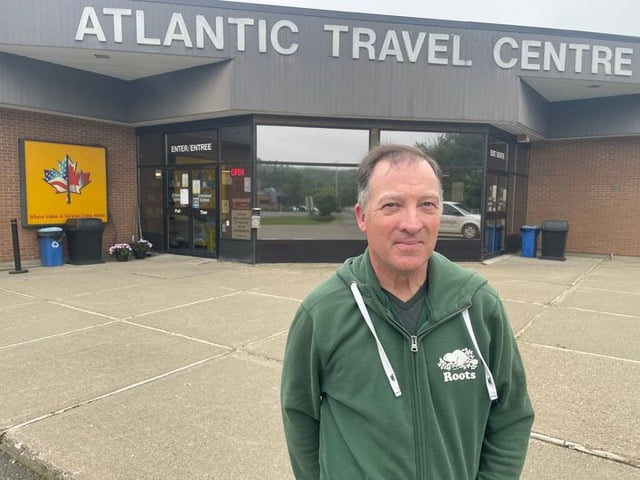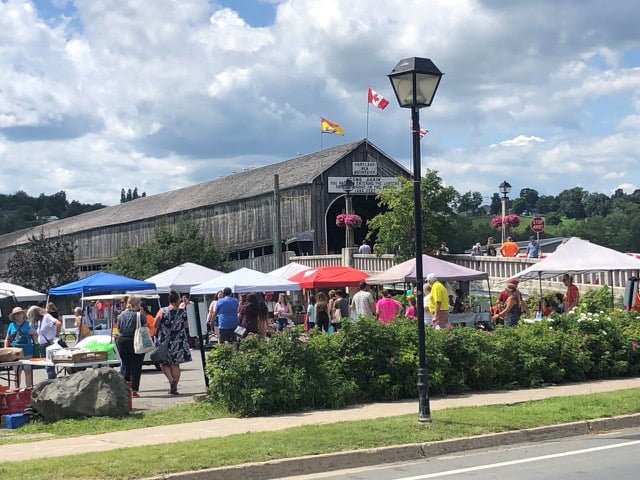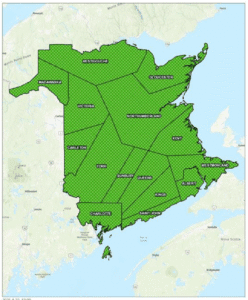Benefits of lifting ArriveCan app won’t happen soon, Woodstock businessman happy to see border restrictions lifted, but doesn’t understand why it took so long
A Woodstock business owner who depends heavily on cross-border traffic welcomes the end to the controversial ArriveCan app and pandemic restrictions. But John Slipp asks why it didn’t happen sooner.
“I’m happy they finally lifted it, but I’m frustrated they waited so long,” said Slipp, owner of the Woodstock Duty-Free Shop at the Canada-U.S. border between Woodstock and Houlton.
Even worse, he fails to see any benefits to Canada prolonging a program which devastated the country’s tourism economy.
Slipp also fears Canada’s border restrictions’ negative impression on Americans who may not return.
With no opportunities or facing strict restrictions to travel for almost three years, Slipp said residents on both sides of the border may have lost their “travel habit.”
He said many Maine and New Brunswick residents routinely crossed the border for years to visit friends, family, events or shopping. After more than a two-year wait, such travel is no longer part of their routines.
Slipp added most of the customers he sees at Woodstock Duty-Free are 45 or 50 or over. He explained many didn’t feel comfortable with technology and phone apps in general or the ArriveCan app in particular.
The disruptions of the app and restrictions caused frustrations which could hurt their long-term travel plans.
“Traffic is going to take a while to rebound,” Slipp said.
U.S. Senator Susan Collins welcomed the Canadian decision but believes more work is needed on both sides of the border.
“The removal of all COVID-19 restrictions for travel to Canada is a cause for celebration for communities along the U.S.-Canada border,” said Senator Collins. “This positive step forward will help to reunite tight-knit border towns, where families often have ties on both sides of the border and residents routinely cross to shop, visit their medical providers, attend church, and participate in local events.”
Collins said that as an Aroostook County native, she pushed for both the American and Canadian governments to reopen the border, which finally occurred last year. She said the American government must address the remaining border restrictions.
“The U.S. should take reciprocal action to eliminate the remaining restrictions on travel to and from Canada, which were always intended to be temporary,” she said.
Slipp said the closed border and subsequent restrictions devastated duty-free operations across Canada.
He said 25 per cent of his business came from American travellers, and COVID completely wiped that out.
Slipp said statistics from the end of July show the industry’s business dropped 50 per cent compared to 2019, with Woodstock business down 60 to 65 per cent. He said August proved no better.
Slipp said the delay in lifting the restriction cost the country its lucrative summer tourism travel business.
Not only did Canada miss the tourist season, but Slipp said other factors would reduce Canadians’ desire to travel.
He said the falling dollar and struggling economy would further erode Canadian’s desire to travel across the border.
“Even people with disposable income to spend are less likely to spend it when they’re losing money on investments,” he said.
Slipp said in the few days since the lifting of border restrictions, the border saw no noticeable increase in traffic.
“Everything adds up to a long winter,” he said.
Slipp said Canada’s lifting of border restrictions and the low dollar provide one ray of hope. He said some Americans might take advantage of their strong dollar to shop in Canada.
“But Americans have not been in the habit of coming over here for going on three years now.,” he said. “It won’t happen overnight.














